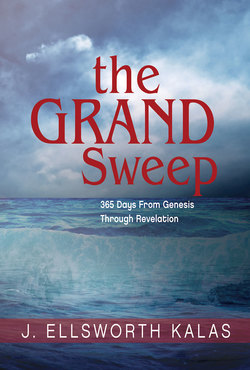Читать книгу The Grand Sweep - Large Print - J. Ellsworth Kalas - Страница 50
На сайте Литреса книга снята с продажи.
Оглавление| LEVITICUS 10–11; PSALMS 33–34 | Week 6, Day 6 |
The teaching of Chapters 8 and 9 is dramatically demonstrated in this story of Nadab and Abihu. As Aaron’s sons, they were in the highest ranks of the priesthood, yet somehow the awesome responsibility hadn’t fully gotten to them.
They violated their office by offering “unholy fire,” and they died. Aaron, who it seems had himself erred far more seriously in the making of the golden calf, “was silent,” and Moses instructed Aaron and his sons Eleazar and Ithamar not to mourn.
Nadab and Abihu’s misconduct apparently sprang from their being intoxicated (10:8-11). If it is hazardous to drive a high-powered engine after drinking, how much more, Aaron’s sons proved, to deal with holy things with less than our best ability.
The subject of clean and unclean foods may seem mundane after the Nadab and Abihu story, but for the writer of Leviticus they are all of a piece. Holiness is an issue not only while ministering in the tabernacle but in all of life. The rules were pragmatic. Maintaining health and sanitation in a desert world, among essentially nomadic peoples, was not simple. Every precaution had to be taken. Many foods that can be safely prepared in our time were a hazard in that time and setting.
The spiritual issue of dietary regulations became an issue early in the Christian church, especially as non-Jews came into the fellowship. The discussion arises often in the Book of Acts.
PRAYER: Help me, I pray, to treat all of life with a sense of awe, lest I thoughtlessly handle holy things in a common way. Amen.
Why were Aaron and his other sons not to mourn the death of Nadab and Abihu? (See also Leviticus 21:10-12.)
